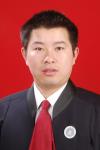Citation:
Ennis v. Allenby,
2007 BCCA 80
Date: (略)
Docket: CA33816
Between:
Aaron Edward Ennis
Respondent
(Plaintiff)
And
James Michael Allenby
Appellant
(Defendant)
Before:
The Honourable Madam Justice Prowse
The Honourable Mr. Justice Hall
The Honourable Madam Justice Levine
A.M. Mersey
Counsel for the Appellant
W.D. Mussio
Counsel for the Respondent
Place and Date of Hearing:
Vancouver, British Columbia
19 January 2007
Place and Date of Judgment
Vancouver, British Columbia
8 February 2007
Written Reasons by:
The Honourable Mr. Justice Hall
Concurred in by:
The Honourable Madam Justice Prowse
The Honourable Madam Justice Levine
[1] This is an appeal from an order of Mr. Justice Slade pronounced January 26, 2006. The judgment can be found at [2006] B.C.J. No. 170. After he was injured in a work related motor vehicle accident on January 25, 2002 the plaintiff/respondent Ennis commenced an action on January 14, 2003 against the other driver, the defendant/appellant Allenby for damages for personal injury. Liability, causation and the nature and extent of the plaintiff's injuries were put in issue. However, as counsel for the respondent noted, the issue on liability is probably one involving degrees of negligence and the plaintiff appears to have sustained significant injuries as indicated by substantial W.C.B. payments made to him to date. Counsel for the defendant required a trial by jury. Prior to the trial, there were discussions between counsel as to the contents of the exhibit books that would be filed before the jury. Counsel agreed that certain medical report documents they filed would be treated as clinical records rather than as expert reports filed under Rule 40A.
[2] The trial commenced in early October 2005 before a judge and jury. Early in the trial, a book of clinical records was tendered by the defence as an exhibit with the consent of counsel for the plaintiff. Copies were provided to the jury. At that juncture the trial judge cautioned the jury that the clinical records before them were inadmissible as proof of opinions that might be expressed in such records and he also advised them that the material should not be read by them until referred to by a witness.
[3] After the trial had progressed for several days, counsel for the defendant cross-examined a witness, an occupational therapist, who had been called by the plaintiff to give evidence on the capacity of the plaintiff to return to work. Counsel for the defence referred to various portions of two reports obtained earlier by the defence and filed as clinical records by agreement, including portions suggesting that tested range of motion measurements of the plaintiff's arm movement were likely unreliable, that there were concerns about consistency of effort in his performance of the tests, and that there were no objective findings to suggest any medical contraindications of the plaintiff commencing a graduated return to work. The witness had had access to these reports but had not made reference to them in her report. The witness responded in general terms that although she had been aware of these comments, she found that the plaintiff's efforts were consistent when she tested him. She said that she felt there was no point in referring to the findings in these other reports in view of her own findings and conclusions about the tests she had had the plaintiff perform and about the work capabilities of the plaintiff.
[4] At no time during this cross examination did counsel for the plaintiff take any objection to questions being put to this witness by counsel for the defendant. Counsel for the plaintiff did not re-examine the witness. After the witness had left the stand, the trial judge raised of his own motion a concern that perhaps certain questions had been improperly put to her during the cross-examination. He asked counsel for the plaintiff if the questioning caused him concern. Counsel for the plaintiff thereupon responded in the affirmative. He argued there had been misconduct on the part of the defendant’s counsel within the terms of R. 41(7) and requested the judge to discharge the jury and proceed to try the case without a jury. That Rule reads as follows:
Where, by reason of the misconduct of a party or the party's counsel, a trial with a jury would be retried, the court, with the consent of all parties adverse in interest to the party whose conduct, or whose counsel's conduct is complained of, may continue the trial without a jury.
[5] Counsel for the defendant submitted to the judge that the reports had been filed by consent and that he was entitled to refer to the portions of the documents in order to demonstrate possible bias on the part of the witness called by the plaintiff. The judge, after hearing argument and considering matters overnight did not accede to the argument of the counsel for the plaintiff but decided that he would nevertheless discharge the jury, thus ending that trial. Presumably it was envisaged that another trial before a jury would be thereafter commenced.
[6] In the course of his ruling, made on October 14, 2005, the judge said that he could not find that counsel for the defence "had “misconducted himself”. He continued, “It is not improper to cross-examine the witness on differences between her findings on physical testing and those recorded in the evaluation prepared for the Workers Compensation Board". He rejected the argument that the jury should be discharged under the provisions of R. 41(7). The judge went on to say, however, that he had concerns about the use the jury might make of the materials referred to in cross-examination and decided that he ought to discharge the jury. Presumably he was acting under R. 41(6) which reads as follows:
Where, for any reason other than the misconduct of a party or the party's counsel, a trial with a jury would be retried, the court, with the consent of the party who required a jury trial, may continue the trial without a jury.
[7] The jury was discharged on October 14, 2005. Thus matters stood when on October 19, 2005 when counsel for the plaintiff brought an application before the trial judge for an advance payment of damages and for costs thrown away. At the opening of this application, counsel for the plaintiff indicated to the judge that he wished at that time to make further argument about the applicability of R. 41(7). Counsel for the defence had not been given notice of this additional head of the application but he did not seek to adjourn the proceeding to allow himself time to prepare a considered response to this aspect of the application. Thereafter, submissions were made to the judge on all of the issues before him. Although there seems to have been a suggestion from the judge that counsel might want to make further submissions in writing, that never occurred.
[8] The judge reserved, suggesting he might consider an oral judgment but, in the event, he delivered written reasons dated January 26, 2006. He awarded the plaintiff costs thrown away, being any non-recoverable witness fees incurred. He found that on the authorities, because there were serious issues of liability, causation and quantum, he ought not to order an advance payment. However, he did reverse his earlier ruling concerning the discharge of the jury and proceeded to find that counsel for the defendant had misconducted himself and found applicable R. 41(7). The result of that reversal of finding by the learned trial judge meant in practical terms that he was enabled to proceed with the trial as judge alone without requiring consent of counsel for the defence. Under R. 41(6) (the one previously applicable pursuant to his earlier ruling of October 14, 2005), consent of counsel for the defence was requisite before the judge could hear the trial himself and that consent had not been given.
[9] On this appeal, counsel for the appellant took us through the impugned cross-examination, seeking to demonstrate that there was nothing improper in it, particularly having regard to the circumstance that several reports containing aspects of both fact and opinion had been filed in the proceedings before the jury by both counsel by consent as "clinical records". Counsel submitted that if the documents were in by consent, either counsel was entitled to make reference to them in cross-examination of witnesses. That submission has force.
[10] I cannot help but observe that the prime source of difficulty in this case was the circumstance that both counsel consented to the filing of reports that may not have been properly admissible. In hindsight, it would likely have been preferable to have the question of the admissibility of the materials more fully determined by the judge before they were filed. While I think it desirable to give counsel considerable latitude in determining how to conduct a case, the clouded status of the reports was the foundation of the problems that later arose. I am sure both counsel saw what was done concerning the particular reports as a satisfactory solution to their disagreement about the admissibility of the reports under R. 40A but their decision created uncertainty about the status and potential use of the reports that had unforeseen consequences.
[11] It appears that counsel for the plaintiff, during the course of the impugned cross-examination, was not of the view that counsel for the defence was utilizing a portion of the "clinical records" in an impermissible way. It was only after intervention by the trial judge and further reflection that he took the view that there had been utilization of the reports in an unacceptable way. Counsel for the respondent in argument before this Court suggested that lawyers may often, as a matter of practice, hesitate to rise before a jury to object to questioning because it could leave an unfortunate impression with the jury that counsel is endeavouring to obfuscate matters of substance. As to that, I can only observe that there is no difficulty at any time during a trial in counsel asking the judge to have a discussion in the absence of the jury, and then objections can be fully argued. That is a perfectly proper course to obviate any possible danger that an unfortunate impression may be given to the jury.
[12] Misconduct is a strong term. Allegations of misconduct of counsel should be sparingly advanced by opposing counsel and judges ought to be suitably cautious in making such a finding against a member of the bar. The case of Birkan v. Barnes (1992), 93 D.L.R. (4th) 392 , 69 B.C.L.R. (2d) 132 (B.C.C.A.) [cited to D.L.R.] is an apt illustration of conduct found to be sufficiently egregious to qualify as misconduct. I take a description of what occurred in that case from the reasons of Gibbs J.A., at 394, who gave the leading judgment for the court:
At the commencement of the trial, and in the absence of the jury, there was a discussion between the trial judge and counsel concerning the decision of counsel for the appellant not to call his client as a witness. The reason given was that the appellant had no recollection of the events leading up to or occurring at the time of the collision.
Counsel for the respondent took the position that counsel for the appellant should refrain from telling the jury why the appellant was not called if, indeed, the trial proceeded on that basis. The trial judge agreed with counsel for the respondent and counsel for the appellant undertook not to give an explanation to the jury. . . .
. . .
During the course of his address to the jury, after all of the evidence was in, counsel for the appellant was in unequivocal breach of his undertaking and of the trial judge's ruling. He gave evidence. He told the jury that the reason his client had not been called to testify was that he had no recollection of the events of the accident. . . .
[13] The conduct displayed in that case, a clear breach of an undertaking given to the court, seems very far removed from the facts existing in the case at bar. It appears to me that this was also the impression of the trial judge when he initially considered the matter. He found nothing improper in the conduct of counsel. Then, some months later, he proceeded to find the conduct improper and deserving of the epithet "misconduct".
[14] Counsel for the respondent submits that such a finding has about it an aspect of the discretionary and this Court ought to give considerable deference to the conclusion of the trial judge. That submission has little force in the circumstances of the instant case where there are two different and contradictory findings on the same issue by the trial judge. A finding of misconduct under this Rule should only be made when the conduct is seriously at odds with the conduct to be expected of counsel and, to denote what occurred here as "misconduct" is, in my respectful view, insupportable. I consider the judge took an appropriate view of the matter in his first ruling and fell into error when he concluded otherwise at a later date.
[15] My conclusion on this aspect of the case suffices to dispose of this appeal but I shall advert briefly to a further ground of appeal advanced on behalf of the appellant. In the course of the proceedings before the trial judge on October 19, 2005, the judge was advised that an offer to settle existed and that advance payments of a no-fault nature had been made. Of course, it is appropriate to place such matters before a judge hearing an application for an advance (as was the case here) but it was inappropriate if it was envisaged that the judge was going to continue to hear the case without a jury. That is so because of the provisions of R. 37(11),
No statement of the fact that an offer to settle has been made shall be disclosed to the court, or jury, or set forth in any document used in the proceeding, until all questions of liability, and of the relief to be granted, other than costs, have been determined.
Reference was also made before the judge to the circumstance that the plaintiff had received a sum of money as no-fault payments. Section 25(4) of the Insurance (Motor Vehicle) Act, R.S.B.C. 1996, c. 231 provides that the amount of such payments "must not be referred to or disclosed to the court or jury until the court has assessed the award of damages". Accordingly, what was brought to the attention of the judge was in breach of that section if the judge proposed to hear the case.
[16] These provisions seem, as counsel for the appellant suggested, to be designed to create a presumption of bias if such disclosure is made to a judge or jury. It may be that a court could disabuse its mind of such a disclosure – see A.(T.) v. K.(R.) (1995), [1995] 3 W.W.R 720 15 B.C.L.R. (3d) 274 (S.C.) rev’d on other grounds [1997] B.C.J. No. 857 (C.A.) but such disclosure is not appropriate to the judge or jury scheduled to hear a trial. I note in this case the amount of the offer to settle was not brought to the attention of the judge so any prejudice on that score to the defendant was therefore lessened.
[17] Because of my conclusion on the first ground of appeal, I do not need to reach any final conclusion here as to whether these disclosures necessitated the judge disqualifying himself from hearing the case. The salient point is that, these matters having been raised and argued before him, the judge was bound to consider these issues and decide whether it would be appropriate for him to continue to hear this case. The judge did not do this. His failure to do so was an error and this is an additional reason to conclude that the order of the trial judge pronounced January 26, 2006, that the trial should continue before him without a jury, cannot stand.
[18] The appeal must be allowed and the trial should be reset for hearing before a judge and jury. Costs in this Court should follow the event. I note that in the factum of the appellant it is stated that "Defence counsel has agreed to cooperate to ensure that a new jury trial will take place at the earliest possible date". In view of the unfortunate delay that has occurred in this case, I would express the hope that some priority can be given to this case to have it brought on in a timely way.
“The Honourable Mr. Justice Hall”
I Agree:
“The Honourable Madam Justice Prowse”
I Agree:
“The Honourable Madam Justice Levine”
==========================================================================================
为尽量避免给当事人造成不良影响,经当事人本人申请110.com将对文章内容进行技术处理,点击查看详情。
==========================================================================================











